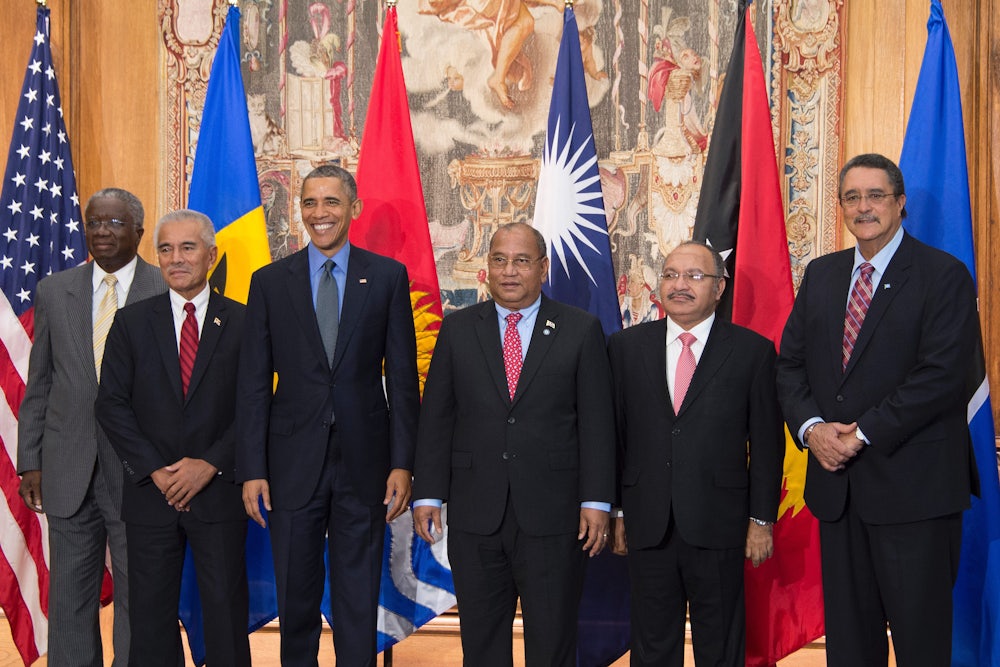On Saturday, 195 countries met an important deadline for reaching a preliminary deal on climate change in Paris this month. The text, now at 48 pages, turns over to higher-level negotiations in week two of the conference to resolve final disagreements. And there are a lot of disagreements.
Even the three broad goals of the agreement are still in debate, with square brackets signify wording that continues to be negotiated:
(a) To hold the increase in the global average temperature [below 1.5 °C] [or] [well below 2 °C] above preindustrial levels by ensuring deep reductions in global greenhouse gas [net] emissions;
(b) To Increase their ability to adapt to the adverse impacts of climate change [and to effectively respond to the impacts of the implementation of response measures and to loss and damage];
(c) To pursue a transformation towards sustainable development that fosters climate resilient and low greenhouse gas emission societies and economies, and that does not threaten food production and distribution.
French Foreign Minister Laurent Fabius, acting as president of the body, wants to see negotiations completed in the next three or four days so the text can be translated and adopted by Friday. Fabius’s challenge will be a tough one to deliver on, especially in settling the key debate over what rich countries owe to poor ones for causing climate change.
